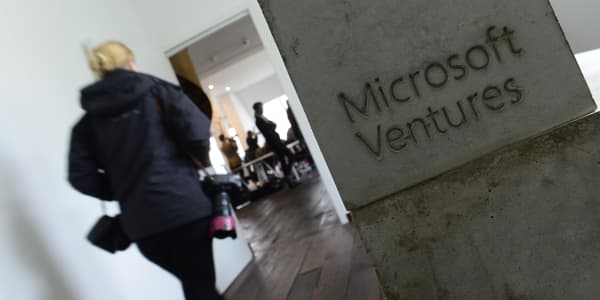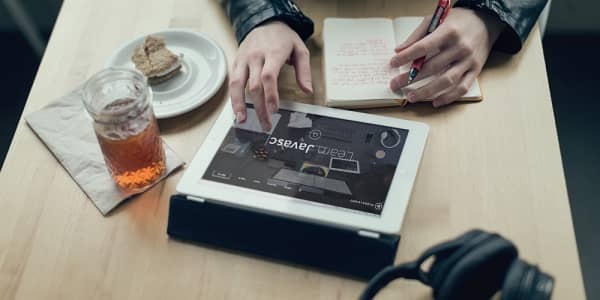
One thing you learn from hanging around cybersecurity professionals, even briefly: Tech and law enforcement work together more closely than most people realize.
"I talk to the FBI all the time, actually," said Nico Sell, founder and chairman of encrypted messaging service Wickr. "Not always formally — they will be here at my party this week," she said.
It's an interesting admission for someone who says Apple CEO Tim Cook is a "national hero" for standing up to the FBI in the San Bernardino iPhone case. But in the cybersecurity world, this mix of sentiments is not uncommon.
Participants at the RSA Conference in San Francisco — the largest annual gathering of security experts — were quick to point out the degree to which the industry does work closely with government, both in a general advisory role and in specific cases.
"A lot of people from the outside just look at it and say 'why doesn't Apple help the FBI, this is ridiculous,'" said Sell. "Generally they do, but [the FBI's demand] is going too far and really threatens our democracy."
"We certainly support the position of law enforcement and we do comply with legal issues when we need to," said Intel security SVP and GM Chris Young. "But the reality is, we do need to make sure that encryption and strong security are paramount for customers and that's what we are committed to."
It's also something that Apple's attorney Bruce Sewell will emphasize in his opening statement before the House Judiciary Committee on Tuesday. "We have a team of dedicated professionals that are on call 24 hours a day, seven days a week, 365 days a year to assist law enforcement," he said in prepared remarks.
Executives in the security business generally voiced support for Apple's fight against a federal court order that it must develop software to help the FBI hack into San Bernardino killer Syed Farook's iPhone.
"We think the real issue in all of this is it's not appropriate for the government to ask any tech company to weaken security in its products," said Young.
"We are not a fan of backdoors," said Marc van Zadelhoff, general manager of IBM Security. "We have been very vigilant across our portfolio and we're watching that case carefully."
Palo Alto Networks CEO and president Mark McLaughlin said both sides have valid arguments — on the one hand, impassioned government and law enforcement officials are doing what they believe is the right thing on national security, on the other hand people are legitimately concerned about privacy.
McLaughlin, who was appointed to the National Security Telecommunications Advisory Committee in 2011, and as chairman in 2014 by President Barack Obama, expects both sides to be willing to take the case to the Supreme Court if necessary.
"Things that are important as a matter of principal are worth fighting for, and both sides in this equation are very principled in what their arguments are," he said.
Cybersecuity executives at RSA, in general, said they were happy that a discussion that often happens behind closed doors is finally happening out in the open.
"I think it's a discussion worth having. It's a good time to have it and I think it's going to be more pertinent as things move forward," said McLaughlin.
"Overall they are good discussions," said Zadelhoff. "These are tough issues and I think we're seeing a good level of discussion out there, on both sides of it."
McLaughlin's keynote session on Wednesday will focus on a concept that sits at the heart of the Apple vs. FBI case: trust in the systems underlying the Internet.
"If you don't trust the underlying systems that you are relying on for all your digital commerce, for your digital information, for your personal information, that handle digital commerce, personal information and data, what if you just stopped using them and you were just afraid to use them?" said McLaughlin.
"If that were the case, what would happen to productivity and GDP declines and things — that could be very scary in the future," he said. "We have to make sure people trust the infrastructure that they are relying on to be secure and this privacy is all part of that trust concept."
"The Web is a global resource and if one of us is not secure, all of us are not secure," said Sell. "We all need to help each other and raise the tides here."







